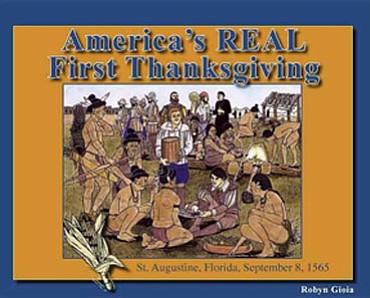Educator and award-winning author Robyn Gioia encourages the use of historical fiction to stimulate a love of reading and more importantly of learning, according to David Bruce Smith, co-founder of the Grateful American Book Prize.
In fact, her website features a space for teachers looking to find classroom resources that will excite young learners about the genre [http://www.robyngioia.com/teacher-resources].
It’s “back to school time” and Gioia’s notions of how best to teach a dry subject such as social studies might be a timely topic for first PTA meetings, according to Smith.
In her most recent blog, Gioia writes that “historical fiction … transports you into the past where life and a culture previously existed. You become part of a world where you walk-the-walk alongside characters dealing with the trials and tribulations of an era long gone.” The piece describes how she uses factually accurate books, including fiction, to stimulate discussion among her students.
One reviewer noted that “she has been referred to as Scheherazade because of her character driven, can’t-put-them-down, page turning stories”-the kinds of history books that can inspire kids and leave them wanting more. Her America’s REAL First Thanksgiving, St. Augustine, Florida, September 8, 1565, created quite a stir for challenging the idea that the holiday was first celebrated by the Pilgrims.
Gioia’s technique for teaching social studies to her pupils brings results. She reads works of historical fiction out loud to her class in “my best dramatic voice.” It’s her way of bringing the past to life. And, she inspires them to ask questions in order to elicit curiosity. In fact, she says, many actually ask her if they can take notes as she reads-a sure sign that she is getting through to them. “I know that annotating their thoughts helps them to develop a stronger understanding of the material and organize the details.”
Smith, also an author, points out that the Prize he established with Dr. Bruce Cole, former chairman of the National Endowment for the Humanities, was created for the express purpose of “rousing authors and publishers to produce more works of engrossing historical fiction and nonfiction so that students in middle and high school could be spared the boredom of textbooks.”
In its three years of existence, the Grateful American Book Prize has established itself as an important award in the publishing field.
“It has put a new focus on historically factual books,” said Smith. The 2017 winner will be celebrated at an October 12th reception at The National Archives in Washington, D.C.
Gioia had this to say about the Prize: “The forging of America was entering unknown territory, historically speaking. Diverse peoples from many countries vied for a place in the new world, a land that grew to be one of the most powerful in the world. It did not happen without sacrifice, hardship, survival, and forward-thinking vision. Engaging historical fiction, imaginative illustration, and intriguing non-fiction books, transports us back in time. It helps readers internalize the unique events that created our country by breathing life into a subject that would have otherwise been unrelatable to many young minds. The Grateful American Book Prize highlights the importance of our history by encouraging young readers to experience the trials and tribulations of a nation that fought to become America.”
